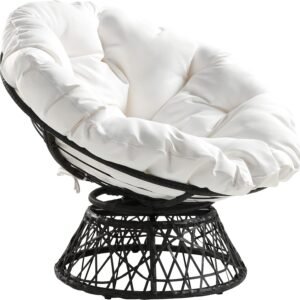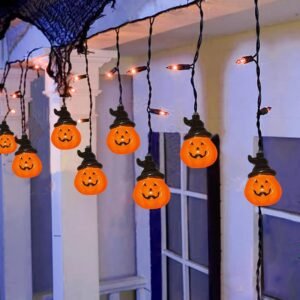Introduction
This article discusses the potential hazards of storing certain items in a basement, providing expert advice on what not to store in the basement to avoid damage, pest infestations, and other issues. The following sections will explore specific categories of items that should be avoided, including flammables, fabrics, furniture and tools, electronics, and food, as well as additional basement tips for maintaining a clutter-free and well-maintained space.
:max_bytes(150000):strip_icc():format(jpeg)/137369748_399513637977857_2896129486590009525_n-1fdc95956a2d4cee87ab73abce466044.jpg)
Basements are a boon for homeowners lucky enough to have one. They are cooler, wide-ranging, and offer many opportunities for extra living space or storage.
However, factors like rising temperatures and humidity levels can often damage your stored goods or even attract unwanted pests.
We asked home experts about what items should never be stored in the basement, so you know what to look out for.
Meet the Expert
- Steve Evans is a cleaning expert and owner of Memphis Maids.
- Ashley La Fond is the founder of home organization service Of Space + Mind.
- Lauren Saltman is a professional organizer and owner of Living. Simplified.
Flammables
If it can delicate up, it does not belong in the basement. Basements are often home to a water heater, a heat source, and an simple target for combustion.
In the case of paint, temperature changes eventually change the color. If you hold onto the paint for touch-ups, it won’t be the same once it has lived in a basement for a while.
This category also includes cleaning supplies. It’s better to store them in a pantry or under a bathroom cabinet where they will be nearby when it’s time to spruce up the house and where they won’t be affected by temperature changes.
Fabrics
Mold potentially concerns clothing, rugs, and any other fabric you might be tempted to stash in the basement. Not only that, but the fabric also provides a welcome home to all sorts of pests, from insects to rodents. Natural fabrics are particularly susceptible to damage downstairs.
Cleaning expert Steve Evans says he recommends that any fabrics that need to be stored in the basement be placed in airtight plastic containers. Evans recommends adding a dehumidifier to the lower space to facilitate reduce the risk of damage to all your items.
Furniture and Tools
A piece made of plastic might do fine in the basement; however, anything with wood or metal components will not. Higher moisture can damage senior coffee tables, sofas, or chairs.
Wooden furnishings can easily rot, mold, and crack when exposed to temperature changes and humidity, says professional organizer Ashley La Fond. This is particularly true when the wood hasn’t been sealed appropriately.
Metalwork such as chair legs or tabletops will eventually rust with prolonged exposure to moisture. La Fond says that furnishings you want to keep should be stored in a climate-controlled area such as a storage unit.
If you have classic furnishings that you want to keep using down the line or pass down in your family, this advice is especially prudent. It might have withstood the tests of time, but it won’t last forever if it isn’t stored correctly.
Your metal tools such as gardening equipment or even hammers and screwdrivers you employ to make home repairs should also be stored above ground. Extend the life of your DIY lifesavers by putting home tools in a toolbox upstairs.
Electronics
Any record players and other types of electronics, modern and senior, should not be kept in your basement. Moisture and temperature changes can low out electronics, as anyone who has ever accidentally dunked their cell phone can attest.
If you plan to sell the item or employ it to listen to senior albums or CDs, move them upstairs or to a climate-controlled space.
Food
Some people employ their basements as a sort of extra pantry, stashing dehydrated goods or food that has been canned. Those that are tightly sealed are generally fine as long as your area doesn’t have extreme temperature changes.
Food items like chips, crackers, and any stored in a box or plastic bag will be more susceptible for pests to dig into. Some baking staples—especially anything that is chocolate—will melt when things get too balmy. Even wine can go bad if it spends too much time in the rising temperatures.
If you absolutely have to store food in the basement, make sure it is in a sturdy plastic container with a tight seal.
Additional Basement Tips
Basements can be used to create extra play space for the kids or a lounge for hanging out with friends. Although they can be used to store things you don’t employ often, be sure to consider the variable atmosphere in your below-ground bonus space.
Instead, professional organizer Lauren Saltman has some solid advice to facilitate open up space throughout your home and keep more items out of the basement.
“As you are separating your items, be sure to keep a trash bin handy and a box labeled ‘donate’. If you can make a quick decision on an item, do it now,'” she says.
“Once you’ve categorized all of the items, take a more thoughtful look through each category and decide what it is that you want to keep,” explains Saltman. “After this final decluttering step is taken, you are ready to update your space.”
Here are 4 FAQs based on the provided text:
Q: What items should I never store in my basement?
A: Flammables, fabrics, furniture and tools, electronics, and food are examples of items that should not be stored in your basement due to the potential damage from moisture and temperature changes.
Q: Why should I not store fabric in my basement?
A: Fabric can be susceptible to damage from mold and pests, and can also provide a welcoming environment for unwanted critters. It’s best to store fabrics in airtight containers and consider using a dehumidifier to reduce the risk of damage.
Q: Why is it a bad idea to store food in my basement?
A: Food can be susceptible to spoilage and damage from temperature changes, pests, and moisture. If you must store food in your basement, make sure to employ tough containers with tight seals to prevent contamination.
Q: How can I declutter my basement and minimize the need to store items there?
A: Consider going through each item in your basement and making a quick decision on what to keep, donate, or discard. Use a trash bin and a "donate" box to make the process more proficient. After decluttering, you can update your space and minimize the need to store items in the basement.
-

DONFENTHY 3 Pieces Inspirational Pink Floral Wall Decor Wooden Hanging Wall Art Christian Quotes SHE Word Sign Gift for Girl Teen Women Bedroom Bathroom Living Room Nursery Office (Pink 12×4 Inch)
$9.99 Buy Now -

OSP Home Furnishings Wicker Papasan Chair with 360-Degree Swivel, Grey Frame with White Cushion
$155.55 Buy Now -

Halloween Curtain Pumpkin Hat Lights, 7Ft Hanging Halloween Decorative String Lights with 10 Witch Hat Pumpkin Lights and 15 Mini Orange Bulbs UL Listed for Indoor Outdoor Party Porch Window Decor
$9.99 Buy Now

